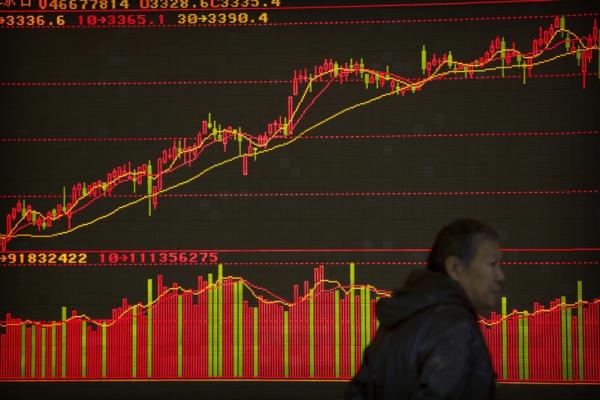S&P, Nasdaq edge higher with gold spike, FOMC minutes in focus
Investing.com-- Most Asian stocks fell on Thursday after U.S. President Donald Trump’s announcement of automobile tariffs ramped up concerns over his trade agenda.
Major technology and chipmaking stocks also fell in tandem with their U.S. peers on growing concerns over a potential supply glut in data center and computing supply for the artificial intelligence industry.
Japanese shares were the worst hit in Asia, given the Nikkei’s high concentration of automakers and tech, while Chinese markets were steady.
Hong Kong shares advanced on strength in local tech names, which have become increasingly disconnected from their U.S. and global peers in recent months, amid optimism over China’s AI prospects and more stimulus from Beijing.
Broader regional markets tracked overnight weakness in their U.S. peers, as Wall Street tumbled on Trump’s tariff threats. His 25% auto tariffs will take effect from April 2, with the U.S. President also expected to announce a host of other tariffs on that date.
U.S. stock index futures fell marginally in Asian trade.
Japan, Korea stocks fall the most on auto, tech losses
Japan’s Nikkei 225 index was the worst performer on Thursday, losing 1.1%, while South Korea’s KOSPI shed 1%.
The two were the worst performers in Asia, given their heavy exposure to automaking and tech stocks. Japan’s TOPIX index shed 0.7%.
Among major Asian automakers, Japan’s Honda (NYSE:HMC) Motor (TYO:7267), Nissan Motor Co., Ltd. (TYO:7201), and Toyota Motor Corp (H:7203) fell between 2.6% and 3.1%. South Korea’s Hyundai (OTC:HYMTF) Motor (KS:005380) sank 3.8% despite recently committing $21 billion towards growing its U.S. operations, which could help shield it from U.S. tariffs.
Trump’s auto tariff comments sparked renewed concerns over the impact of his trade and economic agenda. April 2 is expected to provide more clarity on this front, with Trump set to unveil reciprocal tariffs against major American trading partners next week.
Tech, chipmakers rattled by AI data center questions
Asian tech and chipmaking stocks sank on Thursday, with losses concentrated towards those with heavy exposure to the U.S. AI industry. This came after U.S. tech majors sank overnight, amid growing doubts over AI-driven demand and oversupply of data infrastructure.
NVIDIA Corporation (NASDAQ:NVDA) suppliers TSMC (TW:2330) and Hon Hai Precision Industry Co Ltd (TW:2317) fell 1.8% and 2.4% in Taipei trade, while Japan’s Advantest Corp. (TYO:6857) slid nearly 7%. South Korea’s SK Hynix Inc (KS:000660) lost about 2%.
Losses in tech stocks came in tandem with their U.S. peers, after TD Cowen said major AI investor Microsoft Corporation (NASDAQ:MSFT) had canceled several data center leases in the U.S. and Europe, raising concerns of a supply glut in the AI computing sector. Such a scenario could crimp demand for major chip and server makers, with Nvidia sliding nearly 6% on this notion on Wednesday.
Chinese stocks steady, Hong Kong rises
Chinese markets were an outlier, with the mainland Shanghai Shenzhen CSI 300 and Shanghai Composite indexes rising slightly. Hong Kong’s Hang Seng index rose 0.3%, with local tech stocks appearing to be increasingly insulated from headwinds faced by their U.S. peers.
Optimism over China’s AI capabilities grew this week following new AI model updates from DeepSeek, as well as tech giants Tencent (HK:0700) and Baidu (NASDAQ:BIDU).
Markets were also watching for more cues on stimulus from Beijing, as well as key purchasing managers index data due next week.
Other Asian markets were mostly negative. Australia’s ASX 200 fell 0.5% on the prospect of Trump imposing commodity tariffs. Focus was also on a Reserve Bank of Australia meeting next week.
Singapore’s Straits Times index rose 0.5% to a record high, as aversion to tech and autos pushed investors towards safer sectors such as financials- which comprise a bulk of the Straits Times index.
Futures for India’s Nifty 50 index pointed to a flat open after a recent rebound in Indian shares ran dry.
